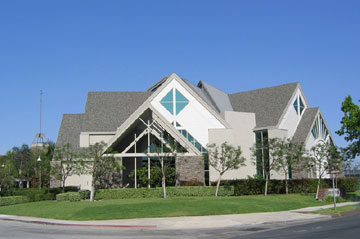So far in this series I’ve suggested three reasons why we don’t pray for business in the context of Christian worship services:
Reason #1: We don’t pray for business because we don’t pray for business.
Reason #2: We don’t pray for business because those who lead us in prayer have not been trained to do so.
Reason #3: We don’t pray for business because our worship leaders have been trained in settings that are indifferent or negative to business.
Reasons 2 and 3 are connected, in that Reason 3 explains why so many seminary-trained pastors are disinclined to think positively about the marketplace and its Kingdom potential. They’d be hard pressed to pray for an institution they consider to be morally bankrupt and generally opposed to God’s purposes. For many pastors, the impact of their seminary training leaves them to think of business more or less as they might think of organized crime. And you wouldn’t expect most pastors to pray for God’s blessing on the mob.
But there are pastors and lay worship leaders who regard business in a more balanced perspective, seeing its Kingdom potential as well as its tendency, in many cases, to serve Mammon rather than God. For example, had you asked me while I was senior pastor of Irvine Presbyterian church, if I thought business could be a vehicle for God’s grace, love, and justice in the world, I would have said “Yes.” I expect this would be true for many of my pastoral colleagues. Yet we rarely pray for the marketplace in our worship services. What might explain this? Today I want to suggest two possible reasons, one that is rather obvious, one that is less so.
Reason #4: We don’t pray for business because Scripture does not command us to do so.
Though I believe you can make a strong biblical case for praying for the marketplace and its workers, you cannot turn to one biblical passage that commands prayer with this focus. Thus, we are not dealing with a situation that is just the same as the case of prayers for political leaders. A passage from the New Testament book of I Timothy reads:
First of all, then, I urge that supplications, prayers, intercessions, and thanksgivings be made for everyone, for kings and all who are in high positions, so that we may lead a quiet and peaceable life in all godliness and dignity (1:1-2)
While we don’t have many kings left in our world, we do have presidents and prime ministers, as well as legislative bodies that play the role once filled by royalty. And we certainly have plenty of people in positions of authority. They regularly receive prayer in Christian worship services, not only because they need it, but also because the Bible requires it.
Reason # 5: We don’t pray for business because we don’t have a vision for how business could be part of God’s business in the world.
Prayers in church often touch upon obvious ministries and the ministers who serve within them. Thus we pray for facets of our own church’s ministry (youth leaders, Sunday school teachers, etc.) as well as our mission partners (mission organizations, agencies that seek justice, other churches, etc.). We might even pray for people who work in secular jobs, if these positions are clearly service oriented (teachers, police officers, social workers).
 But we don’t pray for those who work in business because we don’t tend to see business as, in potential, part of God’s work in the world. Business seems to be, at best, a means to other ministry ends. Thus, a successful entrepreneur can make money to support churches and mission organizations A worker in a company can share her faith with her colleagues or lead a Bible study for them during the lunch hour. But business itself is not seen as something honoring to God or useful for redemptive purposes. (Photo: Wall St. sign in NYC subway)
But we don’t pray for those who work in business because we don’t tend to see business as, in potential, part of God’s work in the world. Business seems to be, at best, a means to other ministry ends. Thus, a successful entrepreneur can make money to support churches and mission organizations A worker in a company can share her faith with her colleagues or lead a Bible study for them during the lunch hour. But business itself is not seen as something honoring to God or useful for redemptive purposes. (Photo: Wall St. sign in NYC subway)
At this point I am not prepared to present a full-scale case for seeing business as central to God’s own business of saving and renewing the world. This must wait for another day, But I think it’s pretty obvious that if pastors and lay leaders were to see business as integral to God’s work, if they were to see business as ministry, then they would be much more inclined to pray for business institutions as well as for those who work in such institutions.
In my next post in this series, I want to suggest another reason we don’t pray for business, one that has to do with broad patterns of thinking in the church today.

